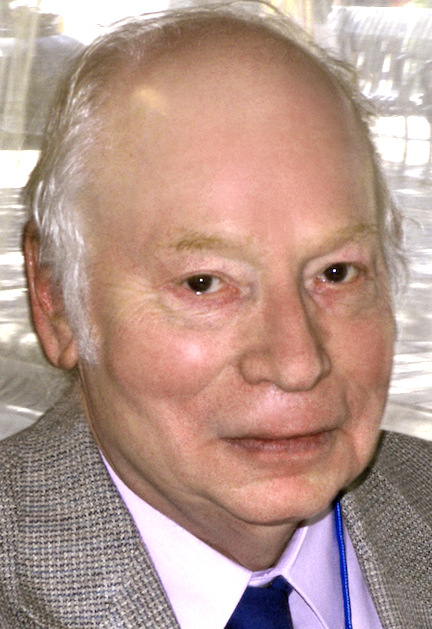On this date in 1933, Steven Weinberg was born in the Bronx, N.Y. He received his undergraduate degree in physics from Cornell University in 1954, which he attended on a scholarship. There he met his future wife, Louise Goldwasser. They married in 1954. She became a professor of law at the University of Texas. Weinberg began his graduate study at the Institute for Theoretical Physics in Copenhagen (now the Niels Bohr Institute). He completed his Ph.D. at Princeton in 1957.
In 1979 Weinberg was awarded the Nobel Prize in physics along with Abdus Salam and Sheldon Lee Glashow “for their contributions to the theory of the unified weak and electromagnetic interaction between elementary particles, including, inter alia, the prediction of the weak neutral current.” This was one of the most significant scientific advances in the second half of the 20th century.
He received many other awards, including the national Medal of Science in 1991. He was also a foreign member of the Royal Society of London. Known for his writing, Weinberg received the Lewis Thomas Prize, which is awarded to the researcher who best embodies “the scientist as poet.”
Weinberg wrote hundreds of scholarly articles and textbooks such as The Quantum Theory of Fields (three volumes: 1995, 1996, 2003) and Cosmology (2008); the more popular works The First Three Minutes: A Modern View of the Origin of the Universe (1977) and Dreams of a Final Theory (1993, which contains a chapter called “What About God?”). His collection Facing Up: Science and its Cultural Adversaries was published in 2001, and Lake Views: This World and the Universe in 2011.
Weinberg was outspoken about his lack of religion and encouraged other scientists to be more vocal in their opposition to religious ideas. He said, “As you learn more and more about the universe, you find you can understand more and more without any reference to supernatural intervention, so you lose interest in that possibility. Most scientists I know don’t care enough about religion even to call themselves atheists. And that, I think, is one of the great things about science — that it has made it possible for people not to be religious.” (Quoted in Natalie Angier, “Confessions of a Lonely Atheist,” The New York Times, Jan. 14, 2001)
He added, “The whole history of the last thousands of years has been a history of religious persecutions and wars, pogroms, jihads, crusades. I find it all very regrettable, to say the least.” Five years later at a forum at the Salk Institute for Biological Studies in San Diego, he said: “Anything that we scientists can do to weaken the hold of religion should be done and may in the end be our greatest contribution to civilization.” (New York Times, Nov. 21, 2006)
In 1999 he became the first recipient of FFRF’s Emperor Has No Clothes Award, reserved for public figures who make known their dissent from religion. He began his acceptance speech: “I enjoy being at a meeting that doesn’t start with an invocation!” He said, “Nothing has been more important in the history of science than the work of Darwin and Wallace pointing out that not only the planets but even life can be understood in this naturalistic way.” More excerpts from his speech can be found here.
He died at age 88 at a hospital in Austin and was survived by his wife Louise and their daughter Elizabeth. (D. 2021)


